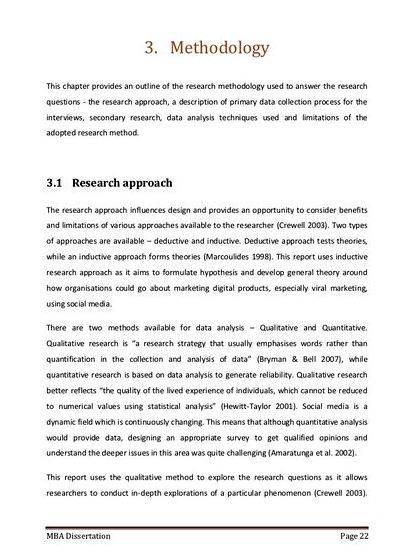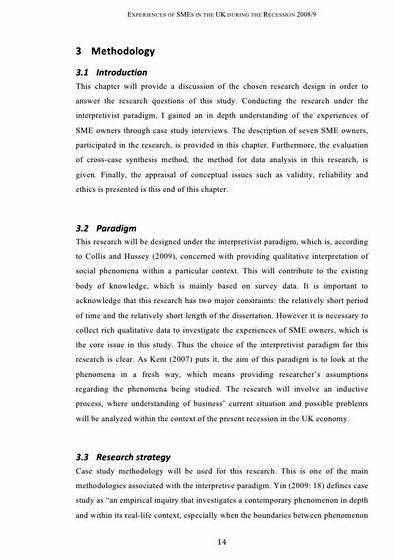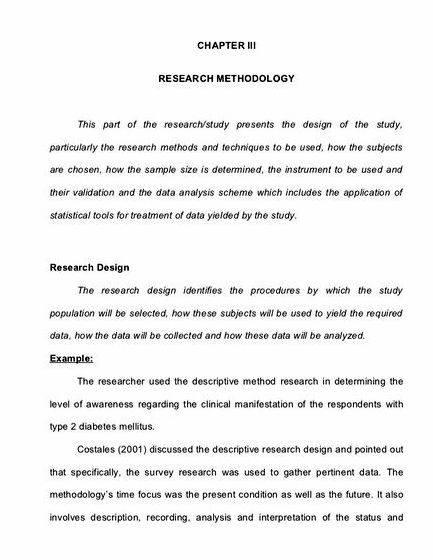

Yesterday the temperature was 70 degrees; today there are flurries of snowflakes outside the window. I thought winter was over and it was time once again for the buds to bloom, but here I am snowbound in Maryland. Clearly I was getting ahead of myself &- spring will be here soon enough.
When your focus is on thesis writing these types of seasonal cycles and traditional deadlines might seem insignificant. Each semester seems just like the previous one, bringing you no closer to finishing your thesis. That’s why you need to break down your tasks into manageable bite size pieces to feel some sense of accomplishment when these seasonal mile-markers pass. You can look back with satisfaction at the items you were able to check off over the past semester. Sometimes even creating a list can seem overwhelming, that’s why TADA! Thesis and Dissertation Accomplished CD has already done the work for you.
When I was in graduate school I spent a lot of time attending workshops on how to write a thesis proposal. I didn’t find any useful information that helped me jumpstart the process. Often I left the workshop feeling more overwhelmed than before. I am a visual learner; I needed to look at other proposals in my discipline to get ideas. Even then I was not motivated to get started. It wasn’t until I found a precious gem of a book called The Proposal Cookbook: A Step by Step Guide to Dissertation and Thesis Proposal Writing by J. Bruce Francis, that I felt confident that I could write my proposal. Unfortunately this book is currently out of print. I summarized some of his suggestions in this newsletter.

While the thesis proposal is generally written in the present and future tense, the thesis is always written in past tense.

The following tips assume that you already have a thesis topic selected:
13 Ingredients of a Winning Proposal|Thesis Writing Methodology
1. Introduction (1-2 pages)
- If you really need to write an introduction, it should capture the reader’s interest but don’t get hung up on making it perfect.
- You can write this section last. Your best overview of the project may come after you have written the other sections.
2. Problem Statement
- Formulate a research question then restate the question in the form of a statement: note the adverse consequences of the problem.
- The type of study determines the kinds of question you should formulate: Is there something wrong in society, theoretically unclear or in dispute, or historically worth studying? Is there a program, drug, project, or product that needs evaluation? What do you intend to create or produce and how will it be of value to you and society?
3. Background
- Capture the reader’s interest and convince him/her of the significance of the problem.
- Give at least three reasons why the problem you have chosen is important to you and society, and specify at least two concrete examples of the problem.
4. Purpose
- Begin with “The purpose of this study is to” change, interpret, understand, evaluate, or analyze the problem.
- State your goal completely, remembering that it should be some form of investigative activity.
5.


Significance
- Focus on the benefits of your study not the research problem.
- Place yourself in the position of responding to someone who says “so what?” Provide a persuasive rationale for your argument by answering the following questions: Why is your study important? To whom is it important? What can happen to society, or theory, or a program if the study is done or not done?
6.Thesis Writing Methodology
- Describe in technical language your research perspective and your past, present, or possible future points of view.
- List three research methodologies you could use, and describe why each methodology might be appropriate and feasible. Select the most viable reseach method.
7. Literature Review
- Locate and briefly describe those studies and theories that support and oppose your approach to the problem. In other words, place the proposed study in context through a critical analysis of selected research reports.
- Be sure to include alternative methodological approaches that have been used by others who studied your problem.
8. Hypotheses
- State clearly and succinctly what you expect the results of your study to show.
- Focus more on the substantive nature of what you expect to find and less on how you will test for those expectations.
9. Definition of Terms
- Describe for the reader the exact meaning of all terms used in the problem, purpose and methodology sections. Include any terms that, if not defined, might confuse the reader.
- State the clearest definition of each term using synonyms, analogies, descriptions, examples etc. Define any theoretical terms as they are defined by proponents of the theory you are using.
10. Assumptions
- Describe untested and un-testable positions, basic values, world views, or beliefs that are assumed in your study.
- Your examination should extend to your methodological assumptions, such as the attitude you have toward different analytic approaches and data-gathering methods. Make the reader aware of your own biases.
11. Scope & Limitations
- Disclose any conceptual and methodological limitations
- Use the following questions to identify the limitations of your study: What kind of design, sampling, measurement, and analysis would be used “in the best of all possible worlds”? How far from these ideals is your study likely to be?
12. Procedure
- Describe in detail all the steps you will carry out to choose subjects, construct variables, develop hypotheses, gather and present data, such that another researcher could replicate your work.
- Remember the presentation of data never speaks for itself, it must be interpreted.
13. Long-Range Consequences
- Think ahead approximately three years after the completion of your thesis project. What are the long-term consequences of your having done the study or not done the study?
- If you carry out the study successfully your results will: confirm your hypothesis; contradict your hypothesis; or possibly be inconclusive.
Thesis Writing Methodology/sample methodology in a thesis
Use the outline above to write your thesis proposal and finish your thesis.
Wendy Y. Carter, Ph.D.
This article contains information about graduate thesis methodology. The original article about thesis proposal writing was without examples of thesis proposals or examples of methodology. However, the TA-DA! Thesis and Dissertation Accomplished resource tool can help you with all aspects of writing your proposal and finishing your thesis. This article written by Dr. Wendy Carter appeared an issue of FinishLine the free monthly newsletter of TA-DA!™
Yesterday the temperature was 70 degrees; today there are flurries of snowflakes outside the window. I thought winter was over and it was time once again for the buds to bloom, but here I am snowbound in Maryland. Clearly I was getting ahead of myself &- spring will be here soon enough.
When your focus is on thesis writing these types of seasonal cycles and traditional deadlines might seem insignificant. Each semester seems just like the previous one, bringing you no closer to finishing your thesis. That’s why you need to break down your tasks into manageable bite size pieces to feel some sense of accomplishment when these seasonal mile-markers pass. You can look back with satisfaction at the items you were able to check off over the past semester. Sometimes even creating a list can seem overwhelming, that’s why TADA! Thesis and Dissertation Accomplished CD has already done the work for you.
When I was in graduate school I spent a lot of time attending workshops on how to write a thesis proposal. I didn’t find any useful information that helped me jumpstart the process. Often I left the workshop feeling more overwhelmed than before. I am a visual learner; I needed to look at other proposals in my discipline to get ideas. Even then I was not motivated to get started. It wasn’t until I found a precious gem of a book called The Proposal Cookbook: A Step by Step Guide to Dissertation and Thesis Proposal Writing by J. Bruce Francis, that I felt confident that I could write my proposal. Unfortunately this book is currently out of print. I summarized some of his suggestions in this newsletter.
While the thesis proposal is generally written in the present and future tense, the thesis is always written in past tense.
The following tips assume that you already have a thesis topic selected:
13 Ingredients of a Winning Proposal|Thesis Writing Methodology
1. Introduction (1-2 pages)
- If you really need to write an introduction, it should capture the reader’s interest but don’t get hung up on making it perfect.
- You can write this section last. Your best overview of the project may come after you have written the other sections.
2. Problem Statement
- Formulate a research question then restate the question in the form of a statement: note the adverse consequences of the problem.
- The type of study determines the kinds of question you should formulate: Is there something wrong in society, theoretically unclear or in dispute, or historically worth studying? Is there a program, drug, project, or product that needs evaluation? What do you intend to create or produce and how will it be of value to you and society?
3. Background
- Capture the reader’s interest and convince him/her of the significance of the problem.
- Give at least three reasons why the problem you have chosen is important to you and society, and specify at least two concrete examples of the problem.
4. Purpose
- Begin with “The purpose of this study is to” change, interpret, understand, evaluate, or analyze the problem.
- State your goal completely, remembering that it should be some form of investigative activity.
5. Significance
- Focus on the benefits of your study not the research problem.
- Place yourself in the position of responding to someone who says “so what?” Provide a persuasive rationale for your argument by answering the following questions: Why is your study important? To whom is it important? What can happen to society, or theory, or a program if the study is done or not done?
6.Thesis Writing Methodology
- Describe in technical language your research perspective and your past, present, or possible future points of view.
- List three research methodologies you could use, and describe why each methodology might be appropriate and feasible. Select the most viable reseach method.
7. Literature Review
- Locate and briefly describe those studies and theories that support and oppose your approach to the problem. In other words, place the proposed study in context through a critical analysis of selected research reports.
- Be sure to include alternative methodological approaches that have been used by others who studied your problem.
8. Hypotheses
- State clearly and succinctly what you expect the results of your study to show.
- Focus more on the substantive nature of what you expect to find and less on how you will test for those expectations.
9. Definition of Terms
- Describe for the reader the exact meaning of all terms used in the problem, purpose and methodology sections. Include any terms that, if not defined, might confuse the reader.
- State the clearest definition of each term using synonyms, analogies, descriptions, examples etc. Define any theoretical terms as they are defined by proponents of the theory you are using.
10. Assumptions
- Describe untested and un-testable positions, basic values, world views, or beliefs that are assumed in your study.
- Your examination should extend to your methodological assumptions, such as the attitude you have toward different analytic approaches and data-gathering methods. Make the reader aware of your own biases.
11. Scope & Limitations
- Disclose any conceptual and methodological limitations
- Use the following questions to identify the limitations of your study: What kind of design, sampling, measurement, and analysis would be used “in the best of all possible worlds”? How far from these ideals is your study likely to be?
12. Procedure
- Describe in detail all the steps you will carry out to choose subjects, construct variables, develop hypotheses, gather and present data, such that another researcher could replicate your work.
- Remember the presentation of data never speaks for itself, it must be interpreted.
13. Long-Range Consequences
- Think ahead approximately three years after the completion of your thesis project. What are the long-term consequences of your having done the study or not done the study?
- If you carry out the study successfully your results will: confirm your hypothesis; contradict your hypothesis; or possibly be inconclusive.
Thesis Writing Methodology/sample methodology in a thesis
Use the outline above to write your thesis proposal and finish your thesis.
Wendy Y. Carter, Ph.D.
This article contains information about graduate thesis methodology. The original article about thesis proposal writing was without examples of thesis proposals or examples of methodology. However, the TA-DA! Thesis and Dissertation Accomplished resource tool can help you with all aspects of writing your proposal and finishing your thesis. This article written by Dr. Wendy Carter appeared an issue of FinishLine the free monthly newsletter of TA-DA!™
Previous answers to this question
This is a preview of an assignment submitted on our website by a student. If you need help with this question or any assignment help, click on the order button below and get started. We guarantee authentic, quality, 100% plagiarism free work or your money back.
 Get The Answer
Get The Answer